Study of physicochemical properties of edible oil ... Please cite this article in press as: Zahir, E. et al., Study of physicochemical properties of edible oil and ...
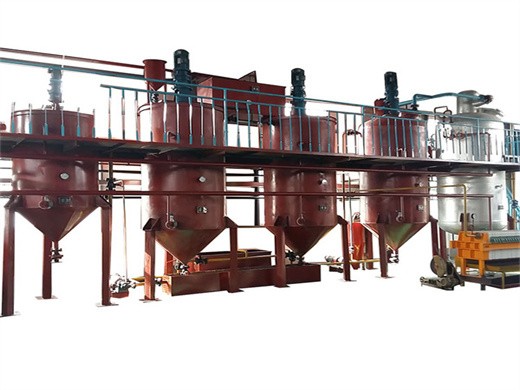
Physicochemical properties like density, viscosity, boiling point, saponification value (SV), iodine value (IV),and peroxide value (PV) of Corn and Mustard oils were studied to evaluate the compositional quality of oils and also to investigate the effect on the use of same oil for repeated frying as it ultimately changes the physicochemical, nutritional and sensory properties of the oil.
Get Price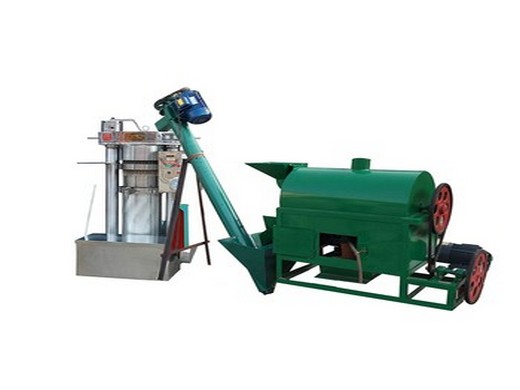
Physicochemical, bioactive, and antimicrobial properties of different cold press edible oil byproducts (almond (AOB), walnut (WOB), pomegranate (POB), and grape (GOB)) were investigated. Oil, protein, and crude fiber content of the byproducts were found between 4.82 and 12.57%, between 9.38 and 49.05%, and between 5.87 and 45.83%, respectively.
Get Price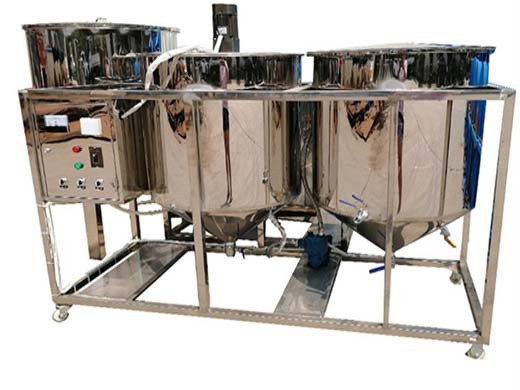
The physicochemical properties of cold extracted oil are given in Table 1. Free fatty acid values, expressed as % of oleic acid, varied between 0.43 and 1.36% oleic. The highest free acid amount was obtained from peanut oil followed by olive and sunflower oil, respectively.
Get Price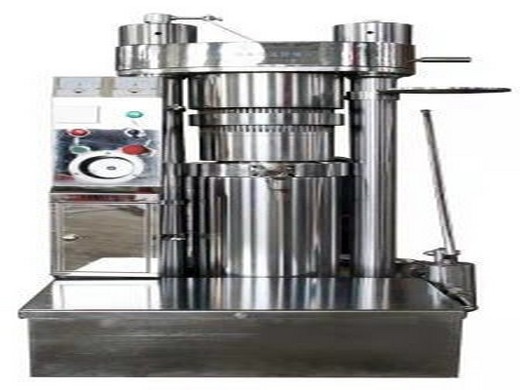
Study Of Physicochemical Properties Of Edible Oil And Evaluation Of Frying Oil Quality By Fourier Transform-Infrared (FT-IR) Spectroscopy.pdf A preview of the PDF is not available Load more
Get Price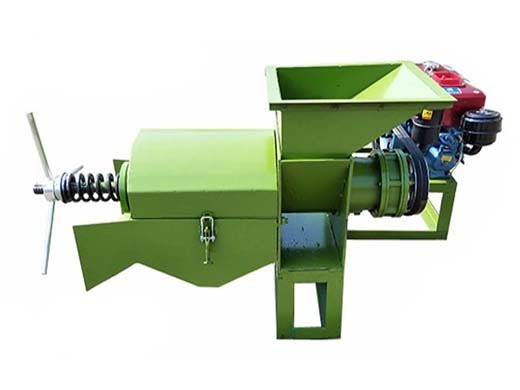
The physio-chemical parameters of the oil are comparable to those of other edible oil, therefore flour from M.Oleifera seeds could be employed in the fortification of other food materials. The result also showed that the properties of M.Oleifera oil in Nigeria could be employed for edible and cosmetics application.
Get Price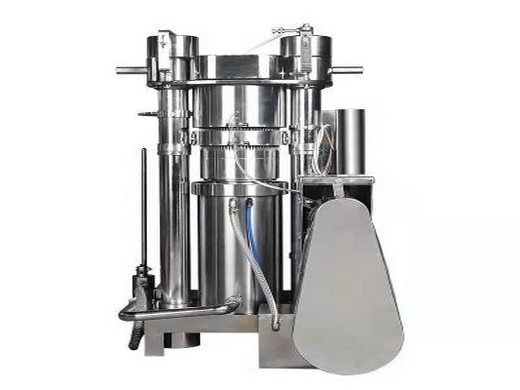
Physicochemical properties of edible oils was assesses using standard analytical procedures. The results obtained gave values of density as 8.8512 g/mL for Cord oil (CO) and 9.8779 g/mL for mustard oil (MO) while values of 111.601 millipoise and 116.832 millipoise were obtained for viscosity.
Get Price
124 A physico-chemical study for.... / Ovidius University Annals of Chemistry 24 (2), 121-126 (2013) peroxid value for the four types of edible oils are presented in Table 2. Table 2. The physico-chemical properties of edible oils Edible oils SV (mg KOH/g sample) IV (g I 2/100 g sample) AV (mg KOH/g sample) PV (mEg O 2/kg sample) Sunflower oil
Get Price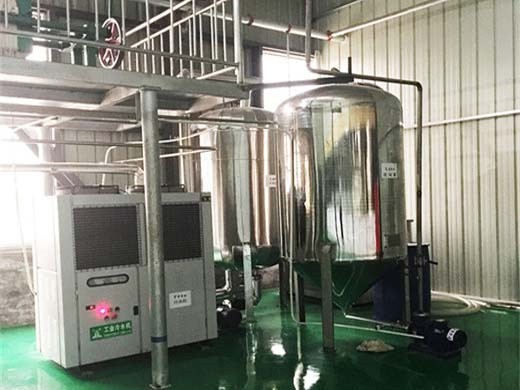
2.7 Nutritional properties of soybean oil 48 2.8 Food uses of soybean oil 49 2.8.1 Cooking and salad oils 49 2.8.2 Margarine and shortening 50 2.8.3 Mayonnaise and salad dressing 51 References 52 3 Palm oil 59 S. W. LIN 3.1 Introduction 59 3.2 Composition and properties of palm oil and fractions 59 3.2.1 Palm oil 59
Get Price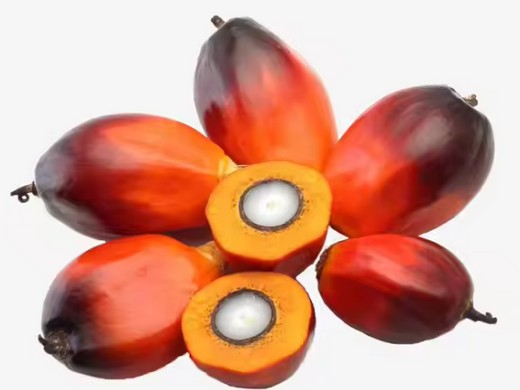
Physicochemical properties of edible oils was assesses using standard analytical procedures. The results obtained gave values of density as 8.8512 g/mL for Cord oil (CO) and 9.8779 g/mL for
Get Price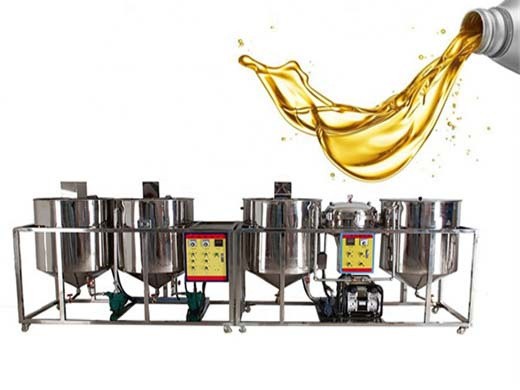
Physicochemical properties like density, viscosity, boiling point, saponification value (SV), iodine value (IV),and peroxide value (PV) of Corn and Mustard oils were studied to evaluate the compositional quality of oils and also to investigate the effect on the use of same oil for repeated frying as it ultimately changes the physicochemical, nutritional and sensory properties of the oil.
Get Price
Abstract Physicochemical properties like density, viscosity, boiling point, saponification value (SV), iodine value (IV),and peroxide value (PV) of Corn and Mustard oils were studied to evaluate the compositional quality of oils and also to investigate the effect on the use of same oil for repeated
Get Price
Study Of Physicochemical Properties Of Edible Oil And Evaluation Of Frying Oil Quality By Fourier Transform-Infrared (FT-IR) Spectroscopy.pdf A preview of the PDF is not available Load more
Get Price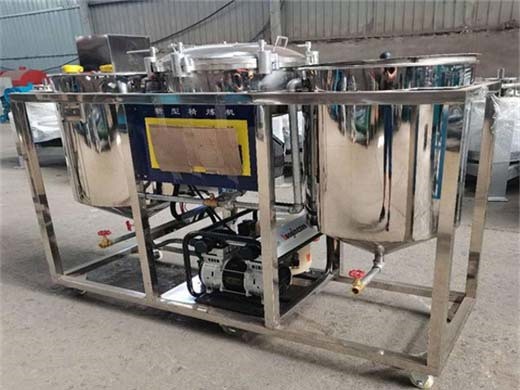
A physico-chemical study for some edible oils properties Ani șoara-Arleziana NEAGU 1, value, acid value, peroxide value for four different edible oils: sunflower oil, corn oil, rapeseed oil and peanut oil. Density was determined in the temperature range of 20 oC 50 oC, with a 10 degree step increase. The physico-chemical properties of the investigated oils were within the requirements
Get Price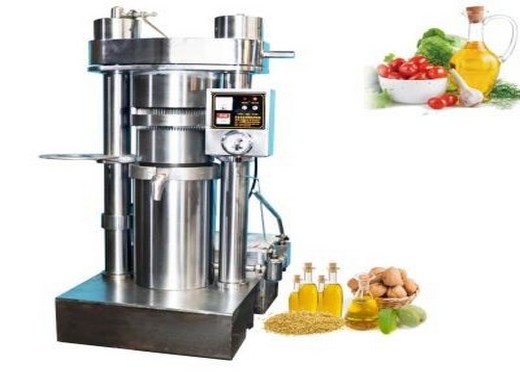
Study on Physicochemical Properties of Edible Oils Available in Bangladeshi Local Market Md. Sabbir Hasan1, Rownok Jahan1, Md. Ashraful Alam1, Mst. Khodeza Khatun1 and Sharif M. Al-Reza1* 1 Department of Applied Chemistry and Chemical Technology, Islamic University, Kushtia, Bangladesh. Authors’ contributions
Get Price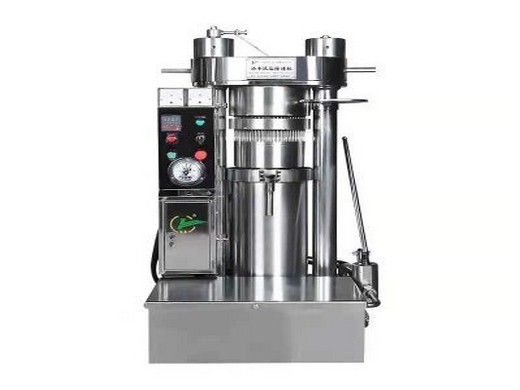
Physicochemical studies on sunflower oil blended with cold pressed tiger nut oil during deep frying process Article (PDF Available) in Grasas y Aceites 63(4):455-465 · December 2012 with 225 Reads
Get Price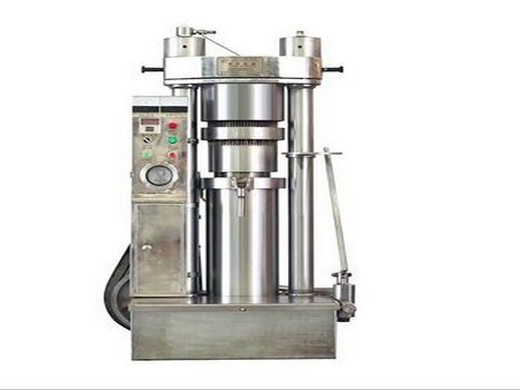
Study Design: This study was designed for selecting a good quality edible oil among various edible oils available in the local market of Bangladesh. Place and Duration of Study: Sample: Sixteen brands of different oil samples were purchased from local market of Jhenidah city of Bangladesh. The research was carried out at natural product
Get Price
Physicochemical, bioactive, and antimicrobial properties of different cold press edible oil byproducts (almond (AOB), walnut (WOB), pomegranate (POB), and grape (GOB)) were investigated. Oil, protein, and crude fiber content of the byproducts were found between 4.82 and 12.57%, between 9.38 and 49.05%, and between 5.87 and 45.83%, respectively. GOB had very high crude fiber content;
Get Price
The present investigation was undertaken to sensory properties of potato chips fried in edible oil and refined oil under different storage condition. The effect of storage conditions and blended
Get Price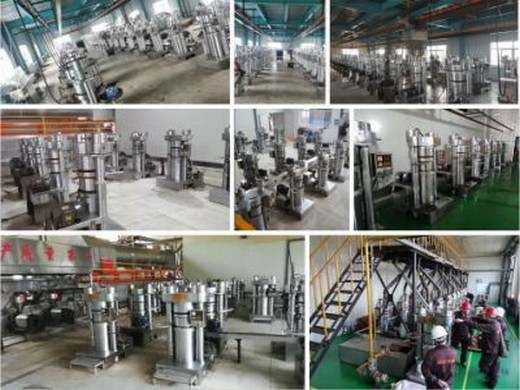
Oils constitute one of the essential components of balanced diet as good source of energy. The chemical and physical properties of oils are amongst the most important properties that determine the quality and help to describe the present condition of oils. The physicochemical characteristics and storage stability of crude palm oils producer traditionally and industrially in Cameroon were
Get Price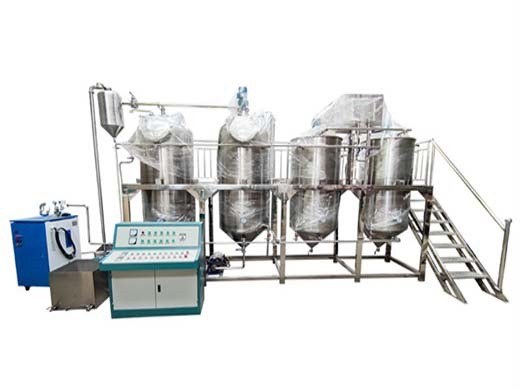
2013-01-01· 3.2. Measurement of physico-chemical properties of edible vegetable oils. The oil samples were kept at room temperature and protected from light in a cabinet during the period elapsed since the purchase until analysis. The measurement of the relative density was carried out at a temperature of 20 °C, using the model 5000 Densimeter from Anton
Get Price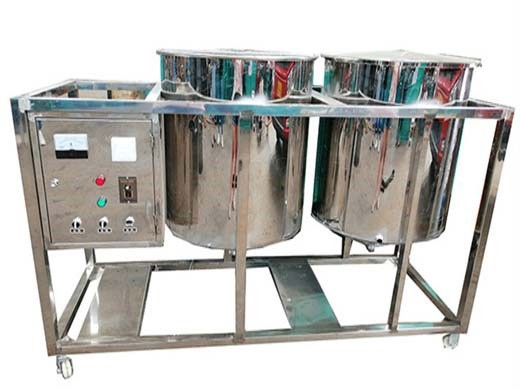
The physio-chemical parameters of the oil are comparable to those of other edible oil, therefore flour from M.Oleifera seeds could be employed in the fortification of other food materials. The result also showed that the properties of M.Oleifera oil in Nigeria could be employed for edible and cosmetics application. The seed oil exhibited good
Get Price
Moringa oleifera is a plant that successfully grows recently in Egypt and has rich of nutrients seeds with valuable content of edible oil. The present study aimed at determining the physicochemical properties of moringa seeds and their extracted oil of which cultivated at different regions in Egypt.
Get Price
physicochemical properties to improve the quality and stability of cottonseed oil. Keywords: Cottonseed oil, Physiochemical parameters, Fatty acid composition.-----Introduction Cotton is a main and largest cultivated crop of Pakistan. Cottonseed oil is a by-product of cottonseed and a good source of edible oil
Get Price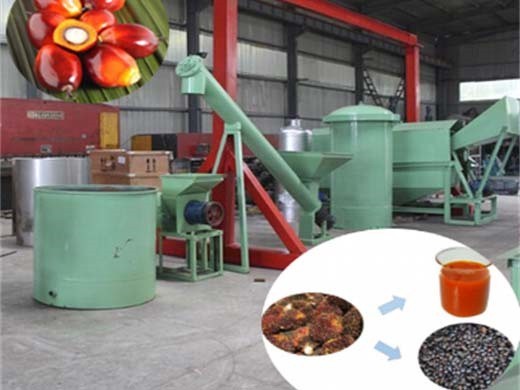
physicochemical characteristics are used to evaluate the quality of oils or fats with reference to known standards. The aim of the present study is to compare the physicochemical properties of groundnut oil extracted from fresh seeds (without heating) with oil obtained from seeds subjected varying degrees of heat treatment. 2. Materials and Methods
Get Price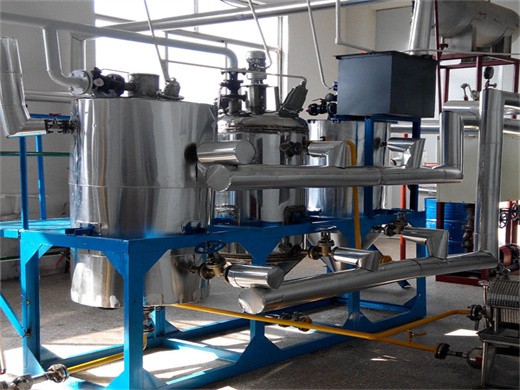
Edible oil Physico-chemical properties Acid values Peroxide value Omega 3 The physicochemical properties of six imported and one locally produced edible vegetable oils (soybean oil, sunflower oil, sunlit oil, hayat oil, avena oil, USA vegetable oil and Niger oil
Get Price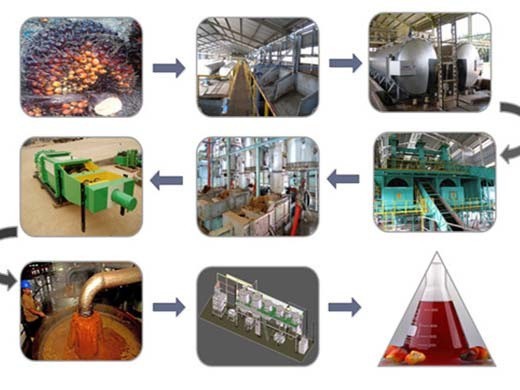
2017-06-30· This study was conducted to investigate the physicochemical properties of meat batters prepared with fresh pork meat, back fat, water, and salt and formulated with three different amounts (5%, 10%, and 15%) of silkworm pupae (Bombyx mori) powder and transglutaminase (TG).Meat batters formulated with silkworm pupae powder showed significantly higher contents of protein and ash than
Get Price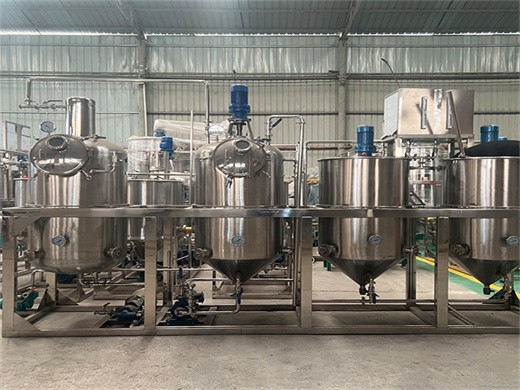
oil reported (Berry 1979) respectively in Malalysian kapok seed oil. The oils with higher iodine and saponification value are suitable for soft soap and cosmetics production as well as for edible applications (Akanniet al., 2005). Characteristics of Table 4: Physicochemical Properties of Kapok Seeds Oil 488.
Get Price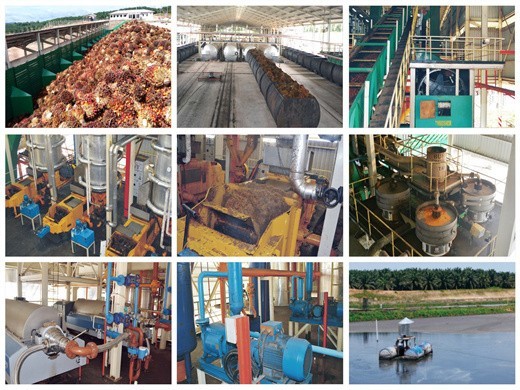
The physico-chemical properties were used to evaluate the fundamental changes in properties of potassium iodide solutions with changes in concentration of different components and experimental temperature whereas the thermodynamic parameters were used for evaluation of the magnitude and nature of different energy changes involved in the
Get Price
B. Getachew et al., "Determination of Oil Content and Physicochemical Properties of Oil Extracted from Niger Seed Oil Grown in Gamo Gofa, Southern Ethiopia", International Letters of Chemistry, Physics and Astronomy, Vol. 63, pp. 141-144, 2016
Get Price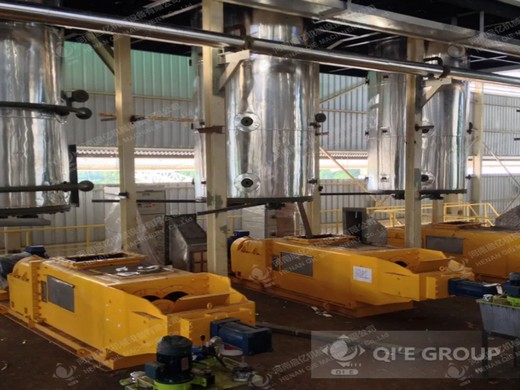
Abstract-A comparative study of the physico-chemical properties of activated carbon of oil palm waste (palm kernel shell (PKS) and oil palm fibre (OPF)) were carried out. The properties evaluated were surface area, moisture content, pH, bulk density, pore volume, porosity, tortuocity, ash content and metal ions present in the oil palm waste
Get Price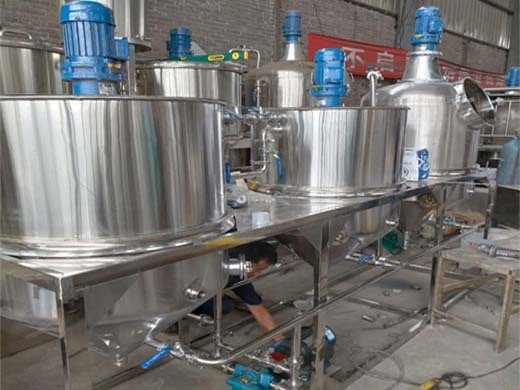
2025-07-15· The content of β‐sheet was almost half of all secondary structures after succinylation, which was supported by analyses of Fourier transform infrared spectroscopy. Results demonstrated that succinylation could be employed to improve the properties of rapeseed protein and SRPI films have great potential to be used as edible films.
Get Price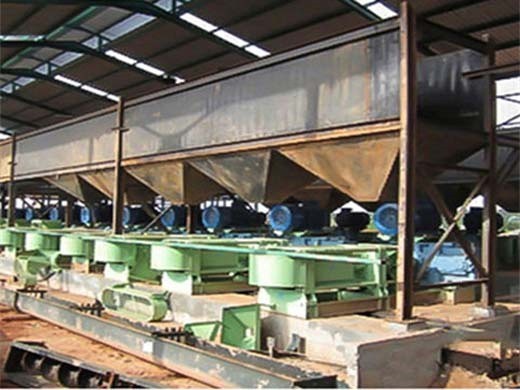
This work aimed at assessing the effects of roasting temperature and duration on chemical composition of argan oil. Thus, argan oils extracted from almonds roasted at different temperatures (75-175°C) and times (10-30 min) were analyzed and compared to a control. The physicochemical parameters (acidity, peroxide value, and absorbance at 232, 270 nm) increased slightly and the fatty acid
Get Price
2025-12-08· If we can explore their physicochemical and biochemical properties, this will add new knowledge to nutrition and food science. Thus, in this study, we compare the physicochemical and biochemical properties of native and hybrid varieties of pumpkin seed and seed oil. Solvent extraction methods were used to obtain oil. The physicochemical
Get Price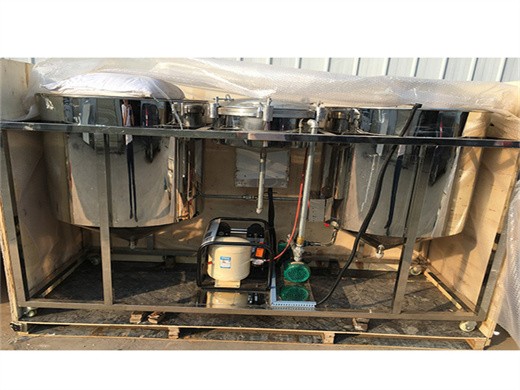
Free Online Library: Evaluation of physicochemical and biodegradability properties of selected Nigerian non-edible oilseeds as potential cutting fluids.(Report) by "Pakistan Journal of Scientific and Industrial Research Series A: Physical Sciences"; Science and technology, general Biodegradation Observations Oilseeds Chemical properties Identification and classification
Get Price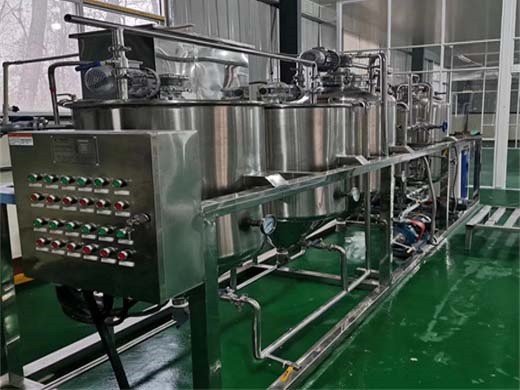
The study aimed at assessing rancidity and other physicochemical properties of edible oils (Mustard and Corn oils) at room temperature. Physicochemical properties of edible oils was assesses using standard analytical procedures. The results obtained gave values of density as 8.8512 g/mL for Cord oil (CO) and 9.8779 g/mL for mustard oil (MO
Get Price![[pdf] physicochemical properties and fatty acid profile](/pic/pko29.jpg)
Edible oils were extracted from the pulp of African pear (Dacryodes edulis) and the seed of tallow tree (Allanblackia floribunda), given a yield of 48.93 and 65.31%, respectively. The oil samples were analyzed for chemical composition, physical properties, and fatty acid profile. Total saturated fatty acids of 51.64 and 34.12% were obtained from Allanblackia seed oil and African pear pulp oil
Get Price
Abrus precatorius seed oil is not edible and possesses lethal toxicological properties; hence, alternative use as low cost feedstock for biodiesel production was investigated. The n-hexane extracted oil was characterized for its chemical and physical properties, and subsequently transesterified using 1% sodium hydroxide at 60°C to produce biodiesel.
Get Price
The physico-chemical properties and level of some essential metals of four edible oils, two imported (Viking and Avena) and two processed in Ethiopia (Selam and Nur) oil samples, were analyzed using classical wet chemical method and flame atomic absorption spectroscopy techniques, respectively. The result of physico-chemical properties shows that acid value in Avena and Viking oils which is
Get Price